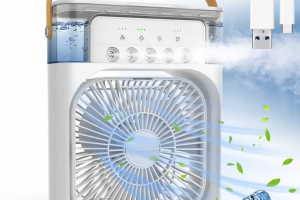[ad_1]
Anger is mounting in EU capitals at a “massive” and “super aggressive” $370bn US green subsidy package that many fear will deal a hammer blow to Europe’s industry and economy. But the bloc is deeply divided over how to respond.
Signed into law last August, the Inflation Reduction Act (IRA) offers huge subsidies and tax credits to companies investing in electric vehicles and renewable energy technologies, such as batteries, solar panels and wind turbines – as long as the products and parts they manufacture are made in America.
The bloc’s riposte is being hampered by fierce disagreements between member states over relaxing strict EU state aid rules – which mostly bar such generous corporate tax breaks – as well as over the prospect of more joint borrowing.
At stake, analysts warn, could be the fate of Europe’s manufacturing base, squeezed not only by record energy prices and an “aggressive” China, but now also by a US administration seen as heedlessly protectionist. Some have warned of potential deindustrialisation of Europe barring concerted action.
“The EU has never had an industrial policy worthy of the name,” said Luuk van Middelaar, a historian. “Faced with China and the US now increasingly exercising their power in this way, it really needs one now – but getting it right will really not be straightforward.”
The EU Commission president, Ursula von der Leyen, has pledged a targeted and temporary relaxation of state aid rules and a common fund to protect the bloc’s green tech industry from wipeout. National leaders are due to discuss the IRA at a summit in February.
Building on that theme in a speech at Davos on Tuesday, Von der Leyen said Brussels would propose asovereignty fund to boost medium-term resources for innovation, research and green industrial projects, with a bridging solution – more immediate funds – to provide “fast and targeted support”.
Whether, and how soon, member states can agree on a package, however, is open to question. “Finding the right response to the IRA will be a key political issue for the EU this year,” said Mujtaba Rahman of the Eurasia group. “Reforming strict state-aid rules will not be easy. Nor will be debates over an EU fund to maintain a level playing field in the single market.”
EU officials and national politicians alike have railed against the IRA, saying it discriminates against European companies selling to the US and – with US energy costs up to four times lower than in Europe – could prove catastrophic for industrial investment.
“I understand the importance of the IRA from the US perspective but on the side of Europe it is seen as much more controversial,” the Czech industry minister, Jozef Síkela, told a round table at Davos. “It is saying to European investors ‘go to the US, because it is more profitable to you’.”
Alexander De Croo, Belgium’s prime minister, went further last week, accusing the US of actively enticing European companies to move. “They are calling firms, in a very aggressive way, to say ‘don’t invest in Europe, we have something better’,” he said.
The Dutch foreign trade minister, Liesje Schreinemacher, has described the IRA as “very worrying”, and Germany’s finance minister, Christian Lindner, called it “enormously protectionist”. His French counterpart, Bruno Le Maire, said that subsidies four to 10 times greater than EU rules allow would upend the “level playing field that is the core of the transatlantic trade relationship”.
The commission has formally expressed “serious concerns” and warned of “retaliatory measures” – which potentially includes a complaint to the World Trade Organization on grounds that the IRA’s provisions on locally produced content violate WTO rules.
Although Washington has promised to look into possible adjustments, European officials expect no big changes and view the only tweaks so far – tax credits for electric vans and trucks – as altogether inadequate.
The EU’s internal market commissioner, Thierry Breton, has toured EU capitals to float a “European clean tech act” as a way to channel cash to the bloc’s green tech industry, noting that all were aware of the need for “fast, coordinated, action”.
But Breton’s plan is in its early stages and its funding is unclear amid continuing discord among member states over how to pay for any combined response by the EU27 to what France’s president, Emmanuel Macron, called the “super-aggressive” IRA.
Margrethe Vestager, the EU’s competition chief, last week announced a review of state aid rules, saying European industry faced a number of challenges, including the very real risk of the IRA “luring some … EU businesses into moving investments to the US”.
State subsidies are, however, a notoriously touchy subject within the bloc, with smaller countries in particular fearing laxer rules would allow big countries with more financial firepower – such as France and Germany – to offer unfair support to their companies, fatally distorting the single market.
Paris and Berlin have issued calls for aid rules to be quickly eased. France wants nothing less than a wholesale remodelling of EU industry support, calling for a “modernisation and simplification shock” including higher notification thresholds for projects in key green tech sectors.
But smaller, less interventionist, countries such as the Netherlands and the Czech Republic, have been far from reassured by recent data showing, perhaps unsurprisingly, that German and French companies hogged nearly 80% of state aid in the EU last year. According to commission data 53% of all state aid permitted in 2022 under a temporary easing of the rules to deal with the energy crisis went to companies in Germany, and 24% went to companies in France – despite the other 25 member states accounting for at least 50% of the EU’s total GDP.
Vestager has acknowledged this danger, calling members’ wildly differing capacities to afford big state subsidies “a risk for the integrity of Europe”, and proposed that any relaxation of state aid rules to counter the IRA should be accompanied by a “collective European fund”, probably financed with joint EU debt.
That idea is supported by France. Italy’s new prime minister, Giorgia Meloni, too, said she would back a European sovereignty fund. But Germany and other influential member states, including the Netherlands, are far from keen on the idea if it involves any more joint EU borrowing.
Lindner was particularly adamant at a meeting of EU finance ministers last December. “A sovereignty fund must not be a new attempt at joint European borrowing,” he said. “We see no reason for additional European debt.”
[ad_2]
#anger #Bidens #protectionist #green #deal #translate #effective #action
( With inputs from : www.theguardian.com )










